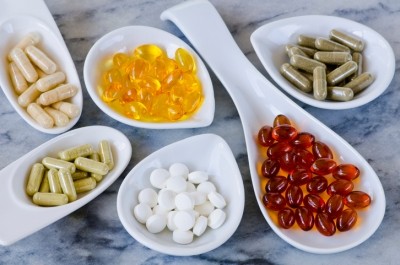Study unlocks Choline’s ‘unique role’ in boosting DHA levels during pregnancy

Results from a randomized controlled trial indicated that maternal choline supplements plus DHA (docosahexaenoic acid) omega-3 supplements during the second and third trimesters of pregnancy led to significantly higher DHA levels compared to DHA supplements alone.
Writing in the American Journal of Clinical Nutrition, scientists from Marie A. Caudill, PhD, RD's laboratory at Cornell explain that this is linked to greater activity of a pathway called PEMT (phosphatidylethanolamine N-methyltransferase), which generates phosphatidylcholine (PC) molecules enriched in DHA that are transported from the liver to various tissues around the body. In pregnant women, this includes the placenta.
“Despite similar DHA intakes, we observed a nearly 75% relative increase in maternal DHA status in the intervention arm compared to the control,” wrote the authors, led by Kevin Klatt. “These data strongly suggest that prenatal choline supplementation influences the efficiency of hepatic DHA handling, mobilization and ultimately, extra-hepatic utilization, and support the view that existing clinical trials of prenatal DHA supplementation likely achieved non-maximal status, resulting from a limited methyl donor supply.
“As the field of nutrition pushes towards more ‘precision’ approaches in hopes of identifying factors that influence the physiological response to nutrition exposures, accounting for known determinants of DHA response to supplementation during pregnancy, such as choline intake, will be key for understanding the causal, dose-response relationships between DHA and maternal infant outcomes.”
The study highlights the importance of increasing choline intakes, with data from the National Health and Nutrition Examination Survey (NHANES) showing that 90% of children, adults and pregnant women are not getting enough choline. The Adequate Intake (AI) for adults is 425 mg/day for women and 550 mg/day of choline for men.
For pregnant women this is a very serious issue, given choline’s importance for the neurodevelopment of the infant. (Recommendations increase to 450 mg for pregnant women and 550 mg for breastfeeding women.)
Cognitive benefits in children
The study used Balchem’s VitaCholine ingredient, and the findings were welcomed by Tom Druke, Marketing Director of VitaCholine.
“Choline and DHA work together to support baby’s brain and eye development, and that’s why we’re excited to see this new data showing that a combination of VitaCholine and DHA results in superior DHA status in expectant mothers – far better than supplementing with DHA alone,” he said.
These new findings follow hot on the heels of a publication in the FASEB Journal earlier this year that showed significant and enduring cognitive benefits to children born of mothers who consumed double the amount of choline during pregnancy.
“Earlier we saw the positive impact of higher maternal VitaCholine intakes on cognitive processing speeds during infancy and the subsequent improvements to focus and sustained attention in the same kids at the age of seven. Now, this new research highlights a dual role for choline early in life – boosting cognitive performance and increasing DHA uptake to support growing brains,” said Shitij Chabba, Vice President of Minerals & Nutrients and Human Nutrition & Health Marketing at Balchem.
“This powerful pairing is critical to enhancing brain development in both the short and long-term,” added Chabba.
Study details
Klatt and his co-workers recruited 30 pregnant women entering their second trimester. All of the women were given 200 mg/day DHA and also randomly assigned to receive either 25 mg/day or 550 mg/day of supplemental VitaCholine until delivery.
The results showed that there was a tendency towards higher PC-DHA levels in red blood cells in the 550 mg choline group compared to the other group, and statistically higher levels of plasma PC-DHA, plasma total DHA, and red blood cell total DHA and these were sustained through delivery among the women receiving the 550 mg choline/d + 200 mg DHA/d regimen.
“Our results collectively indicate a significant nutrient-nutrient interaction between supplemental choline and supplemental DHA during pregnancy that warrants reflection on the large body of randomized trial evidence that has attempted to test the hypothesis that prenatal DHA supplementation improves fetal outcomes,” wrote the researchers.
Source: American Journal of Clinical Nutrition
Published online ahead of print, doi: 10.1093/ajcn/nqac147
“Prenatal choline supplementation improves biomarkers of maternal docosahexaenoic acid status among pregnant participants consuming supplemental DHA: a randomized controlled trial”
Authors: K.C Klatt et al.















